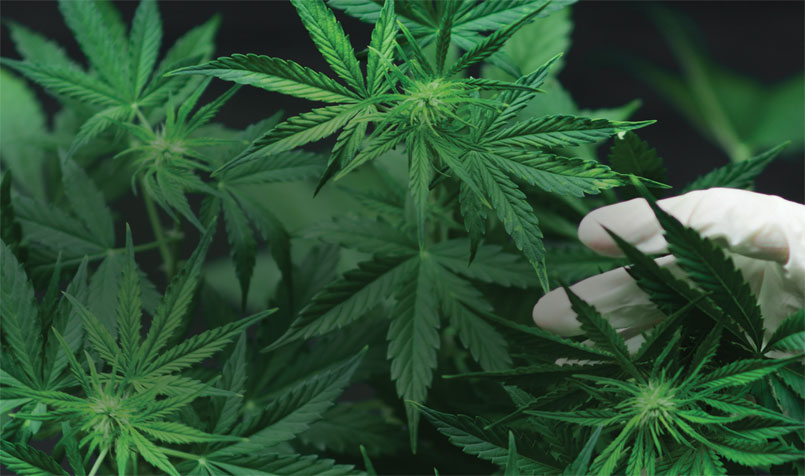Marijuana (cannabis) is making headlines every day. Medical use has been legalized in 33 states including Georgia. Ten states (but not Georgia) as well as the entire country of Canada have legalized recreational use and consequently overall consumption is rising. It is already a multibillion dollar industry. As a result, the health benefits and risks need much understanding.
Cannabis comes from the cannabis sativa plant. It contains a number of chemical substances called cannabinoids, the two major ones being delta-9-tetrahydrocannabinol (THC) and cannabidiol (CBD). Our body has cannabinoid receptors. THC is what causes the intoxication “high”. THC concentrations are usually shown as a percentage of weight. Concentrations greater than 16% are considered high potency and less than 0.3% is considered hemp. CBD on the otherhand produces no intoxication but has a number of potential health benefits — analgesic, anti-inflammatory, anti-nausea, anti-emetic, anti-psychotic, ant-ischemic, anti-epileptic and anti-anxiety properties.
Cannabis can be consumed in many ways- smoking as a joint or bong, vaping, as an oil extract, as an edible in food or juices, as a tincture in alcohol, or as a heated inhalation through dabbing or shattering. Recreational cannabis has an addictive potential that is most common during teenage years. Chronic exposure in young individuals under the age of 25 increases the risk of problem solving deficits, inattentiveness, memory loss and learning disabilities. Cannabis can actually worsen anxiety, depression and increase the risk of schizophrenia. Use in pregnancy and breastfeeding leads to low birthweight babies, anemia, hyperactivity, cognitive deficits, reduced academic achievement and increased risk of future substance abuse. Marijuana use impairs driving ability by worsening judgement, motor coordination and reaction time. It is recommended on average to wait six hours after consumption before driving.
The impact of cannabis on the heart is only beginning to be understood. Smoking and second hand smoke exposes the individual to the same toxins found in tobacco. Vaping reduces the exposures to some but not all carcinogens. This exposure is of greater concern in those with established coronary artery disease, asthma, chronic obstructive pulmonary disease or peripheral vascular disease. High doses can trigger plaque rupture leading to a heart attack, stroke or limb loss.
Cannabis raises heart rate and blood pressure which can conversely make people more anxious or paranoid. It can also aggravate arrhythmias in those with a history of palpitations. Therefore the lowest dose needed to relieve symptoms should be used. Medical use of THC should start low at 2.5 mg a day and never exceed more that 20 mg in a day. Always let your health care professional know if you are using cannabis since some potential drug interactions exist. To date no major harmful effects of CBD on the heart have been identified.
While there is lots more to be learned about the medical and recreational use of cannabis it is here to stay. As health professionals and as users we need to keep an open mind on its potential benefits but respect that it can also do harm. Legal complexities also provide a challenge to safe use as federal laws are discordant from state laws and each state has varied regulations. Best advice—consumer be aware!


